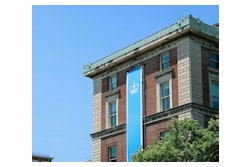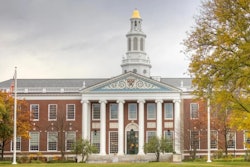WASHINGTON—At a time when the promising practices and the potential of new drugs to arrest the HIV/AIDS epidemic in the U.S. are greater than at any other time in the past three decades, recent data released at the International AIDS Conference, July 22-27, show that the most vulnerable people at the epicenter of the disease—African-Americans, especially gay men—are steadily losing ground and their lives in the war against AIDS.
The AIDS crisis among Black men who have sex with men, or MSM, is far from over and not even close to being under control, according to a new report released this week by the Los Angeles-based think tank The Black AIDS Institute. Black MSM account for 1 in 500 Americans, but represent nearly 1 in 4 new HIV infections, according to the report “Back of the Line: The State of AIDS Among Black Gay Men in America.”
“Black men who have sex with men are engulfed in a raging generalized epidemic,” said Phil Wilson, president of the Institute and an openly gay Black man who has been living with HIV for 32 years. In fact, the report found that the odds of a Black man who has sex with men becoming infected increase from a 1-in-4 chance of infection at 25 years old to a 59.3 percent chance by the time he reaches 40 years old.
“Almost six in every 10 Black gay men in America will be HIV-positive by their 40th birthday,” Wilson told more than 23,000 delegates, policy makers, researchers, government officials and advocates during the speech he delivered July 23 at the conference’s opening plenary session.
Wilson was among this week’s HIV/AIDS experts, scholars and speakers who shared what they see as the best and worst of times in the three-decades-old AIDS battle. They also peered cautiously into a future where a new generation of people will be AIDS free.
The “AIDS-free world” that Secretary Hillary Rodham Clinton described during her address here on the first day of the conference would look like this: “Virtually no child anywhere will be born with the virus; as children and teenagers become adults, they will be significantly at lower risk over ever becoming infected than they would be today, no matter where they are living; and, if someone does acquire HIV, they will have access to treatment that helps prevent them from developing AIDS and passing the virus on to others.”
For Black America: Take Ownership of the Epidemic
For Cynthia Davis, an assistant professor at the Historically Black Charles R. Drew University of Medicine and Science, new research announced this week focusing on finding a cure for HIV/AIDS and the recent FDA approval of the antiretroviral drug Truvada to prevent HIV infection among high-risk people was greeted with excitement. These products mark major scientific gains in an epidemic that put Davis on the perilous frontline as a health educator and advocate in the early 1980s in Los Angeles when the mysterious virus was emerging among Black and White gay men.
But Davis, a delegate at the international gathering, is also cautious and concerned about whether African-Americans will have access and realize these gains.
“For African-Americans, the outlook does not look good,” she said. “The HIV/AIDS stigma still remains a tremendous barrier in the African-American community, and there are numerous structural barriers that make it difficult for poor, low-income people to access care and services. Until the African-American community, as a whole, takes ownership of HIV/AIDS and begins to work in partnership, we will just keep spinning our wheels and the numbers will just keep rising.”
Thirty-one years ago, Dr. Michael Gottlieb was a junior professor at UCLA teaching immunology when he identified a disease anomaly in seven gay men in Los Angeles, five White and two Black. In 1981, acquired immune deficiency syndrome or AIDS, Gottlieb determined, was the virus that was consuming his patients within days and months.
On July 24, when a reporter spotted Gottlieb, he was not among the international delegation, but standing quietly among row after row of colorful panels in the AIDS Memorial Quilts stretched out on the National Mall here. As those back at the AIDS Conference talked enthusiastically about turning the tide of the HIV/AIDS epidemic, Gottlieb told Diverse Issues that, instead of “a light at the end of the tunnel,” he sees “a glimmer.”
And if he could speak to African-Americans who are saddled with HIV infection rates that rival those in sub-Saharan Africa, Gottlieb said he would tell them, “they must take control of their destiny, work at the grassroots level, and educate, educate, educate” themselves about HIV/AIDS.



















